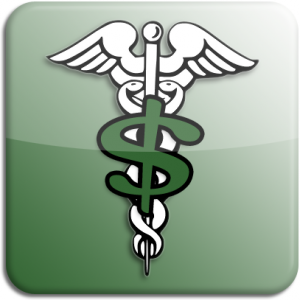Health Care Law Upheld: What It Means To You
 By Hope Gillette, Voxxi
By Hope Gillette, Voxxi
The Supreme Court has upheld the entire Affordable Care Act in a monumental ruling set to impact millions of people in the United States. Only the government’s power to eliminate states’ Medicaid funds has been deemed “narrowly read” – meaning it is limited but not invalidated.
“Nothing in our opinion precludes Congress from offering funds under the ACA to expand the availability of health care, and requiring that states accepting such funds comply with the conditions on their use. What Congress is not free to do is to penalize States that choose not to participate in that new program by taking away their existing Medicaid funding,” says the Court’s live blog report from page 55 of the opinion.
Twenty six states took the health law to court in this landmark case, claiming the Affordable Care Act (ACA) was unconstitutional, and that the government had overstepped its bounds on certain provision of the law. The individual mandate, which requires eligible residents of the country to purchase health insurance or face a penalty, was at the heart of the debate.
During the courtroom debate, Justices acknowledged the potential repercussions of repealing the law, but ultimately decided to uphold ACA, with Chief Justice Robert’s being the swing vote in the 5-4 ruling.
Now, with the law, young adults, seniors and minorities, as well as 30 million people who stood to gain insurance in 2014, will continue to march toward that goal. Those who are eligible and do not participate in the health care programs available will be subject to a minimum tax penalty.
With the health care reform, young adults will be allowed by law to remain on parents’ insurance plans until age 25, a provision of the health reform that ultimately increased coverage to 75 percent for people between the ages of 19 and 25, according to the Associated Press.
With over 3 million young adults added to insurances plans through the ACA, the provision was popular enough with the nation’s residents many private insurers stated they would carry on this form of coverage in one way or another.
Seniors are similarly affected by the ruling in favor of health reform law. Under the ACA, senior patients were already seeing benefits in regards to prescription coverage, with many individuals able to obtain important medications through discounts on name-brand and generic purchases. Seniors will retain no-cost no-co-pay preventative disease screenings and wellness visits, as well as a guarantee their coverage would not be adjusted based on chronic illness or capped with a lifetime limitation.
Latinos also benefit from the already-created Office of Minority Health and its efforts toward eliminating health disparities.
A 2009 Gallup poll found that 41.7 percent of Hispanics in the country, aged 18 and over, lacked health insurance, compared with a national average of 16 percent and 11.6 percent of Non-Hispanic whites.
Under the ACA, many Hispanics will now have access to health care, including the 39 percent of uninsured Latino children who will be allowed to remain on their parents’ policies until the age of 26.
But the Supreme Court’s decision doesn’t just affect certain age groups or ethnicities; the law affects residents of the United States as a whole, with important health care issues no longer left hanging on the Court’s decision.
By 2014, 30 million people will gain access to health care coverage, able to shop for their own plans through government mandated exchange programs.
Insurance companies will be held accountable for their spending and for premium increases, and those who fail to meet certain standards will issue refunds to the insured.
One of the most popular portions of the law in regards to children, eliminates policies from insurance companies pertaining to preexisting conditions. Now, no child can be denied coverage due to a preexisting condition.
But it’s not just children benefiting from a lift of insurance limitations. Adults can no longer be denied coverage for medical conditions, nor can a lifetime limitation be placed on their coverage. Insurance companies won’t be able to increase premiums either.
This article was first published in Voxxi.
Hope Gillette is an award winning author and novelist. She has been active in the veterinary industry for over 10 years, and her experience extends from exotic animal care to equine sports massage. She shares her home with four cats, a dog, a horse, and her tolerant husband.
[Image By nffcnnr]
